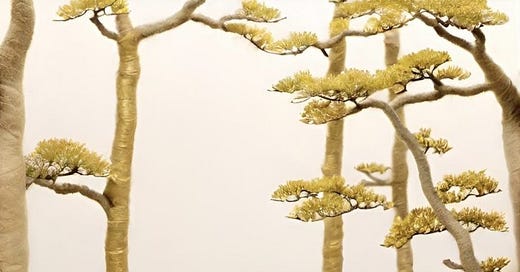In the forest of Chinese Zen, some trees do not reach for the sun; they grow inward, rooted deep in silence. Among them, the monk Jichan (寂禅) remains a quiet presence, an enduring echo of the purest Chan.
The Biography of Jichan
Jichan’s exact birth and death dates remain unknown—lost in the way that some monks let go of worldly names and timelines. Scholars place him somewhere in the late 8th to early 9th century, during the Tang Dynasty, the age when Chan Buddhism was not only maturing but flourishing.
Jichan’s name, meaning "Tranquil Meditation" or "Silent Zen," is likely a Dharma title rather than a birth name. It is emblematic of his style—non-discursive, serene, and entirely immersed in direct experience. He is believed to have trained in the Hongzhou school, a dynamic lineage of Chan which emphasized sudden awakening and non-duality, led by figures like Mazu Daoyi and Baizhang Huaihai.
Jichan did not lead a large monastery or write philosophical treatises. Instead, he lived simply, often choosing mountain temples or forest hermitages. He was known for sitting in long, unmoving meditation, rarely speaking unless pressed and even then, only in phrases meant to point away from the intellect and toward the essence of mind.
One recorded story tells of a disciple asking him about enlightenment. Jichan said nothing. When the disciple asked again, Jichan slowly raised a hand and pointed to the floor. The disciple reportedly attained realization that night.
He died, it is said, as he lived: seated, unmoving, with a soft smile and not a single word.
II. Poetic Section: "The Sound of Jichan"
In a hut no larger than a breath,
a monk watches mountains move through fog.
He has not spoken for three winters.
His words are stones now, resting in the streambed of silence.
A student arrives, asking:
“What is the way?”
Jichan’s tea boils over.
He doesn’t move.
Later, in the moonlight,
the student hears a frog jump.
A thought disappears.
Keep reading with a 7-day free trial
Subscribe to The Gentle Law to keep reading this post and get 7 days of free access to the full post archives.





